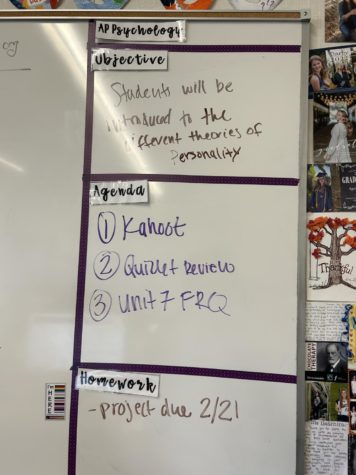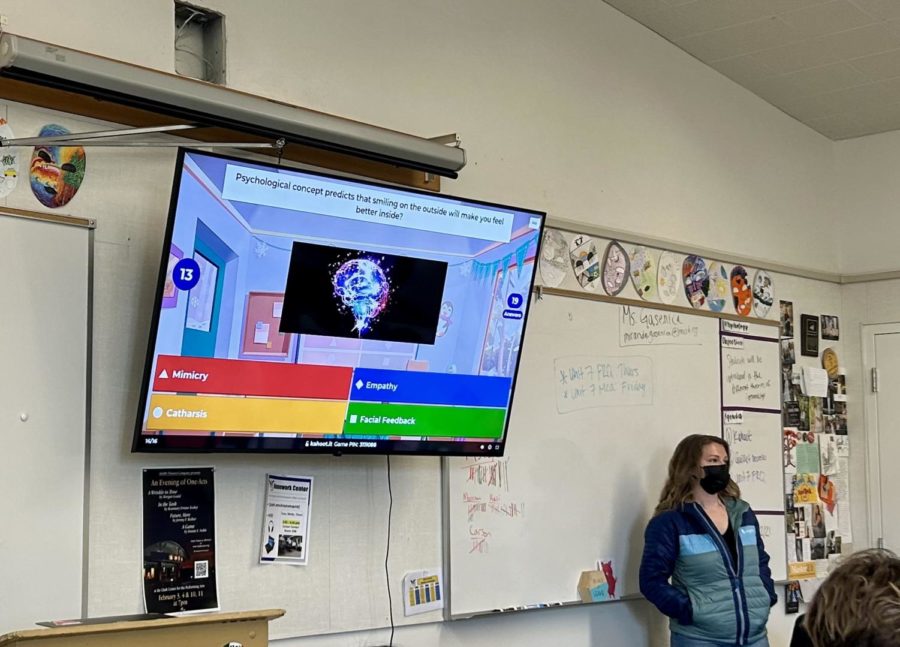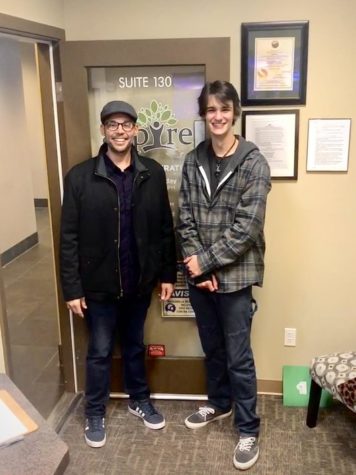Supporting eating disorder sufferers in education
Miranda Gasenica teaches AP Psychology alongside getting her master’s degree in hopes to become a school counseler.
Eating disorders are grave mental illnesses impacting millions every day, and have an extremely high mortality rate. Approximately 28.8 million Americans are affected by an eating disorder at least once in their lifetime, with 77,7600 sufferers being adolescents (via anad.org and eatingdisorderhope.com). In an effort to spread awareness about this deadly issue, these statistics and facts are frequently shared through social media, and are ironically effective, considering social media is historically seen as a promoter of eating issues and body insecurities.
Though revealing statistics are a great way to encourage people to combat eating disorders and help those struggling with them, awareness and advocacy go beyond statistics, numbers, and social media posts. In reality, it’s likely that everyone will be personally affected by an eating disorder at least once, whether it be by a loved one or themselves. Beyond the horrifying statistics and tragic deaths, being affected by an eating disorder can have considerable emotional toils, such as feeling ashamed of and hating one’s body, not being able to eat a loved family member’s famous cookies, obsessively spending the majority of the day counting calories, or seeing yourself or a loved one become so unwell they are unable to continue their education.
Fortunately, help is available for students who are struggling with an eating disorder and continuing their education. Miranda Gasenica, a teacher at Arroyo Grande High School is pursuing a master’s degree in school counseling, alongside maintaining her teaching career.
“I chose to go to school counseling because I went through my own mental health issues not too long ago, and I felt very fortunate to have a therapist and someone who would be there for me,” Gasenica said.

Having gone through her own struggles with mental health and eating-related issues, Gasenica recognizes the importance of having resources for students struggling with various mental health issues, including eating disorders. Attending school or a job while battling an eating disorder that correlates with persistent feelings of shame, sadness, and anxiety can feel impossible.
“That really came from a personal point of view. I took a little leave of absence for a while, which was super helpful, but, even to this day, you leave things at home and then come to work trying to portray a separate kind of point of view,” Gasenica said.
While attending school consistently is important for one’s future, it can be impossible to put on a brave face and focus on academics, not to mention one’s health should be the first priority. Though nonprofit organizations such as ANAD and Project HEAL aim to spread awareness on how eating disorders impact more students than is generally known, there remains a large portion of the population who aren’t in support of inclusive eating disorder treatment.
“A lot of people who don’t understand the prevalence of it, and a lot of people see it as, ‘oh, you’re being healthy, you’re getting fit,’” Gasenica said.
Gasenica isn’t alone in her awareness of the inaccurate perception that being thin or eating less is the same as being fit. This widely spread stereotype present in the media, workplaces, and schools has been unfortunately accepted and even promoted by many. It enforces the idea that health and beauty have a look, leading to higher rates of disordered eating resulting from a negative body image.
Not only is negative body image and disordered eating patterns more prevalent in high schools and adolescent-heavy institutions than in other settings, but there is limited education on eating disorders in the process of becoming a school counselor, implying that school counselors and psychologists may not have the sufficient resources and tools necessary to support students struggling with eating disorders.
“So far the only [information] I had [was] a paragraph in one of my textbooks, that’s about it for specific eating disorders and disordered eating,” Gasenica said.
Though it is true that school mental health professionals and counselors could push to be more active advocates for eating disorders and disordered eating awareness, the truth is that fighting against the dangers of eating disorders involves everyone. It involves psychologists, educators, parents, children, friends, and everyone in between. No one should have to experience a debilitating and even deadly mental illness alone. Though it may feel impossible at times, eating disorder recovery is feasible, and an eating disorder-free life full of joyous experiences and food meant to be enjoyed is possible.

Mia Hinds is a senior at AG High School, and is in her second and final year with the Eagle Times. She has a dog named Miko, who is a pitbull and husky...









